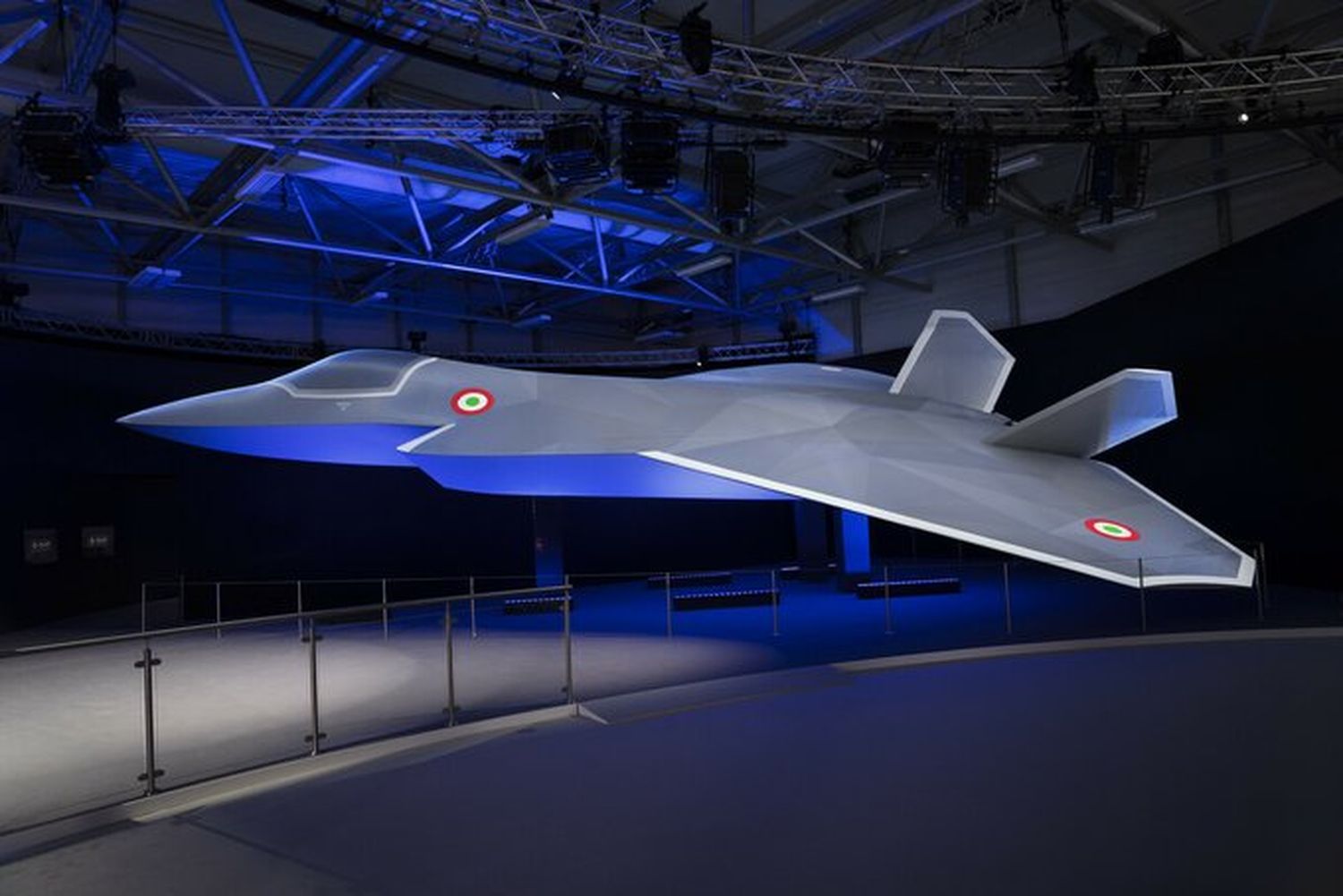Farnborough 2024: UK, Italy and Japan unveiled the GCAP concept model, joint sixth-generation fighter jet
The three nations involved in the Global Combat Air Programme (GCAP) – the United Kingdom, Italy, and Japan – have unveiled a new conceptual model of their next-generation combat aircraft at the Farnborough International Airshow.
For the first time, the three government partners of GCAP and their main industrial partners, BAE Systems (UK), Leonardo (Italy), and Mitsubishi Heavy Industries (Japan), showcased the significant progress being made in the development of the aircraft. The new conceptual model on display features a much more evolved design with a larger wingspan to enhance aerodynamics.
Engineers from BAE Systems, Leonardo, and Mitsubishi Heavy Industries are collaborating on the design and development of the future combat aircraft using innovative digital tools and techniques, such as computer modeling and virtual reality.
“The pace of the program is extraordinary, building on a solid foundation and industrial legacy in each country and a government-led partnership. Since the treaty was signed in December 2023, the program has seen strong commitment from each partner,” said Guglielmo Maviglia, Director of the Global Combat Air Programme at Leonardo.
“In the 18 months since the launch of the Global Combat Air Programme, we have been working closely with our industrial partners in Italy and Japan under the collaboration agreement, and also with the three governments, to understand and align the requirements for a next-generation combat aircraft,” said Herman Claesen, Managing Director, Future Combat Air Systems, BAE Systems.
“MHI views any project as a valuable opportunity to deepen our knowledge. In particular, since the GCAP is a joint development program between Japan, the UK, and Italy, we expect to achieve better results and deeper insights than ever by combining the different cultures, experiences, and expertise of the three industries involved,” said Hitoshi Shiraishi, Senior Fellow, GCAP, Mitsubishi Heavy Industries.
The combat aircraft, set to enter service in 2035, will be one of the most advanced, interoperable, adaptable, and connected fighters in the world. It will feature an intelligent weapons system, an interactive software-driven cockpit, integrated sensors, and a powerful next-generation radar capable of providing 10,000 times more data than current systems, giving it a decisive edge in combat.
GCAP is a strategically important partnership, bringing together the governments of the UK, Italy, and Japan, along with their respective industries, to collaborate on shared military and industrial goals. The program is significant for the security, political, and economic prosperity of each nation, and through effective knowledge and technology transfer, it will help deliver a critical sovereign combat air capability.


Comentarios
Para comentar, debés estar registrado
Por favor, iniciá sesión